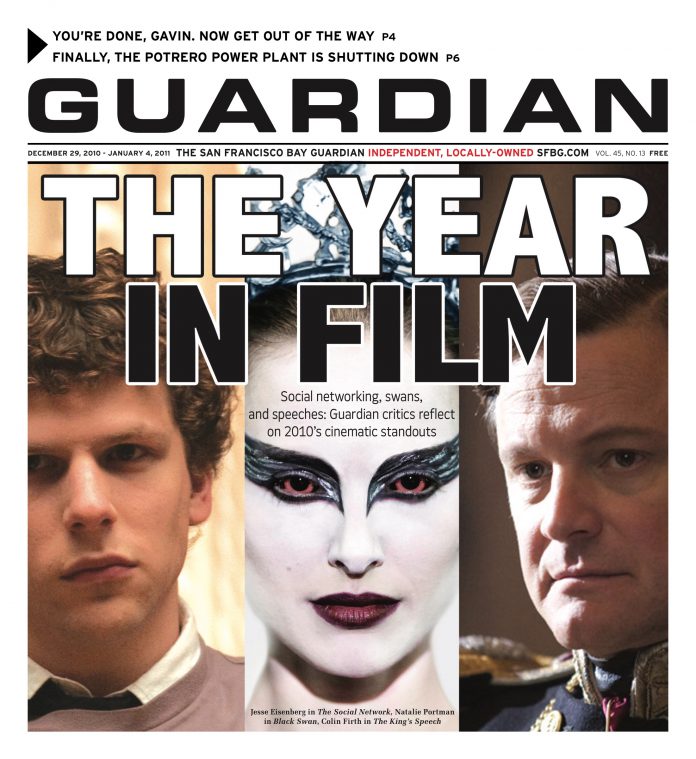news@sfbg.com
Owning a car in San Francisco can be a real drag. Between gas and traffic jams and all those parking tickets that always seem to make it onto windshields just as time expires, cars simply require too much effort and expense for most people.
But San Francisco — being the liberal, environmentally conscientious city it is — has increasingly been pursuing car-sharing as an alternative to wasteful sole ownership and use. The city even recently extended the idea to bicycles with a 1,000-bike program now coming online. And the idea of sharing vehicles is just one of many realms now promoting the more collective sharing of private assets.
San Francisco Municipal Transportation Agency statistics show that the number of car-free households in the city has been slowly but steadily rising, from 29.8 percent of households in 2009 to 30.3 percent in 2010. While that may only be a small drop in the proverbial bucket, people are starting to consider alternatives to ownership, including car-sharing.
The idea of car-sharing is nothing new, it’s been around for decades in Europe and on the East Coast, and it has gained popularity here in recent years with the homegrown City Carshare and the arrival of Zipcar, which both rent their fleets of vehicles for short amounts of time. People are freed from car ownership and those monthly payments to dealerships if they are willing to be a little more flexible in their transportation habits.
But people will now have a more organic car-sharing alternative as a new car-sharing insurance law, approved as Assembly Bill 1871 in September, goes into effect in January. It will make it easier for car owners to rent their own cars for cash and still be covered under an insurance policy.
Under current California law, renting a private vehicle for profit is tricky with insurance companies. But all that is all changing since the successful legislation by Dave Jones, a Democratic Assemblymember from Sacramento who will soon be sworn in as the new state insurance commissioner. This makes it easier for companies that facilitate owner and renter exchanges, including RelayRides, which just opened shop in San Francisco.
“RelayRides is a strong compliment to City Carshare and other alternatives. The more options people have, the more viable [car-sharing will be],” company CEO Shelby Clark told the Guardian. The company started in Boston, and Clark said he’s confident San Franciscans will increasingly embrace these kinds of peer-to-peer transactions.
Car-sharing has been successful due to its symbiotic relationship between car owners and renters, giving car owners a way of making money on their idle assets while letting renters have access to a car without the full expense and headaches of owning one.
“You don’t need to own a car — you just need access to one,” Clark said.
The rise of these car-sharing programs has allowed for what many see as a move toward reducing consumption and increasing commercial interactions between people in the same areas, a definite plus at a time when people are tightening their budgets.
Lisa Gansky, a local entrepreneur and author of The Mesh: Why the Future of Business is Sharing, sees this trend thriving due to the technology that is now able to support it. People can now connect online and have access to more goods and services than ever before with just a few clicks of a mouse or a tap on an iPhone.
“We can now locate physical goods with each other,” Gansky told us. Anyone can now use and experience goods in a whole new way. Objects that were once reserved for those who could shell out enough cash to buy them can be used now as experiences rather than mere goods.
In the car-sharing models, people can rent all different sorts of cars, from energy efficient Priuses to those sleek and shiny Ferraris. Potential customers can try out different makes and models before buying.
“This decade we changed our relationship with things like music and movies. Next decade it will be with physical stuff,” Gansky predicted. She also sees the trend expanding further as people move away from ownership and toward mere access. Data from UC Berkeley’s Transportation Sustainability Research Center show that there are 27 car-sharing programs in the U.S. with around 448,574 members sharing approximately 8,120 vehicles as of July 2010. Other sharing models are blooming everywhere as new businesses and entrepreneurs tryto get a piece of the action. RelayRides got a hefty investment from Internet giant Google when it opened Dec. 14 in San Francisco.
Other small businesses are finding ways to utilize this new sharing economy as well, including apartment-sharing websites such as www.airbnb.com that allow people to rent rooms on a short-term basis, to the nonprofit www.couchsurfing.org, where space is traded and offered for free.
Caterina Rindi, a small business owner of Mo Foods, uses sharing models in her grocery store as well by trading goods from her store in exchange for surplus fruit from her neighbors’ backyards, which she then converts to other products she can sell. Rindi, who is also a car-sharing user, urges others in the community to engage in these programs as a way to live a more sustainable life.
“It’s about not having to buy more or new things and about sharing with your neighbors,” Rindi said.
Although the notion of sharing with a stranger may prevent some people from entering these programs, Gansky sees it as a small hurdle. “People who are renting their cars are making money and helping their neighbors. And neighbors feel good for paying a neighbor. They’ll go back to the same person if they can — there’s an emotional connection.”

